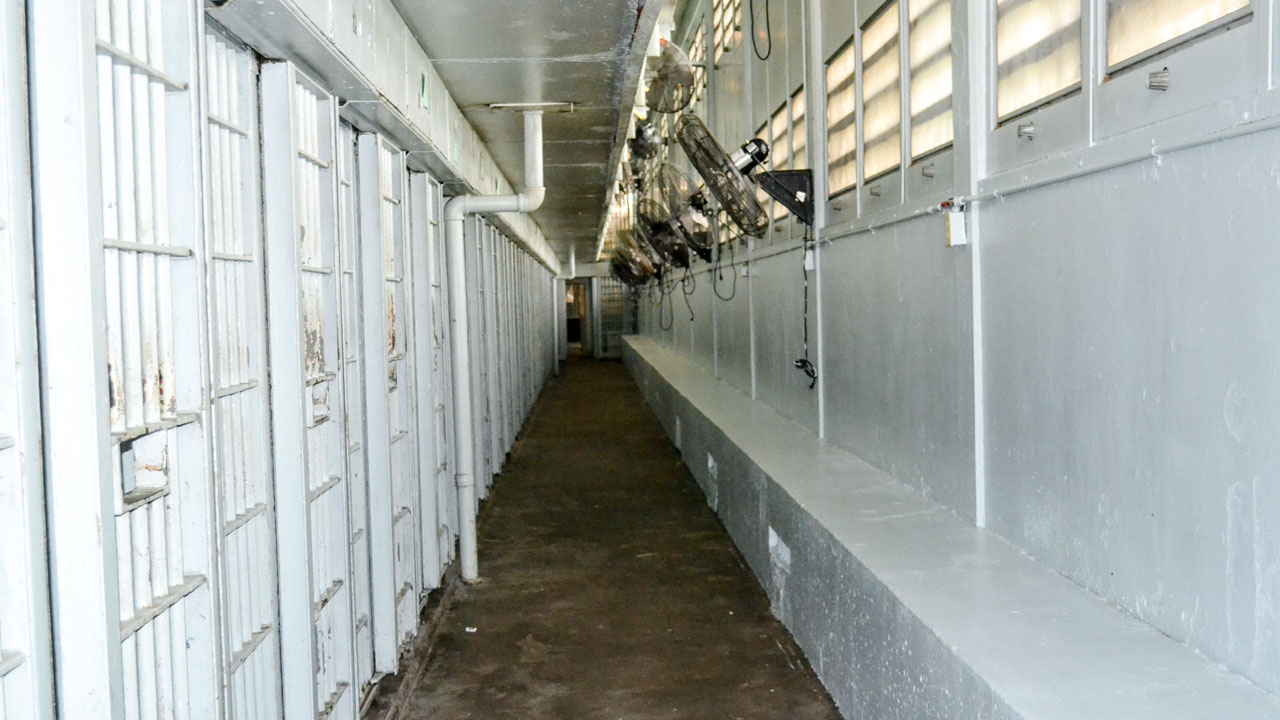A solution to fix the “horrendously inadequate” mental health care provided to people in Alabama prisons may require a series of evidentiary hearings, a federal judge indicated this week at a status hearing.
Since U.S. District Judge Myron H. Thompson issued a 302-page ruling in June identifying multiple areas where the Alabama Department of Corrections has failed to maintain a constitutionally adequate mental health care system, the Southern Poverty Law Center, Alabama Disabilities Advocacy Program and others who filed the lawsuit three years ago have been working with ADOC to reach an agreement on how to reform the system.
That process may now involve a series of evidentiary hearings in Thompson’s courtroom on ways to remedy ADOC’s liability found in the June order. If Thompson proceeds along the path he proposed in court on Thursday, the hearings would begin in October with the first addressing how ADOC will determine and reach the number of correctional officers needed; currently almost half of the authorized positions are vacant. In Thompson’s June order, he highlighted a key issue facing the system: “persistent and severe shortages of mental-health staff and correctional staff, combined with chronic and significant overcrowding.”
Other hearings would address issues such as hospital level of care and segregation.
“People diagnosed with mental illness have been grossly neglected and cruelly mistreated in Alabama’s prison system,” said Maria Morris, SPLC senior supervising attorney. “Our priority is to ensure prisoners receive the treatment they have been denied for so long. We are committed to finding immediate and long-term solutions to barriers preventing a constitutional level of care.”
Problems Thompson identified in the ADOC mental health care system ranged from failure to identify prisoners with serious mental health needs to inadequate treatment for suicidal prisoners. During the two-month trial, one incarcerated witness told the court he received only minimal attention from mental health professionals, and only while he was on suicide watch. Less than a month after his testimony, he died by suicide, alone and unmonitored, in an ADOC prison cell.
Addressing the mental health care system is just one part of a larger, multifaceted case alleging that ADOC provides unconstitutional health care to people who are incarcerated. The lawsuit was filed in 2014 by the SPLC, ADAP, and the law firms Baker Donelson and Zarzaur Mujumdar & Debrosse.
Thompson issued a consent decree this week requiring ADOC to ensure that prisoners do not receive involuntary medication without adequate protections of their due process rights under the Constitution.
“This consent decree is another step forward in our efforts to ensure that prisoners get the care they need,” Morris said. “No one should be forced to take medication against their will, unless it is deemed absolutely necessary after a hearing in which the individual’s rights are respected and protected.”
To hold prison staff accountable under the consent decree, ADOC will provide ADAP with a monthly roster of all prisoners who undergo an involuntary medication hearing. ADAP can request additional information and the mental health records for a sampling of those individuals, and can use the data to prepare monthly reports that evaluate ADOC’s compliance with the consent decree. Unless otherwise ordered, the consent decree will expire after two years.
In 2016, the plaintiffs settled the first phase of the lawsuit regarding violations of the Americans with Disabilities Act. In that settlement, ADOC committed to provide services and fair treatment to incarcerated people with disabilities.
The court has not yet set a date for the final phase of the case, which challenges the prison system’s poor medical and dental care services.



